






SAHIL FOOD AND PHARMA ENGINEERING- is a leading Engineering Company for Design, Consultants,
Fabrication, Erection, Installation, Commissioning and Turnkey Project of Various Processing Industries like
Dairy Processing / Fruit Processing / Food Processing / API & Pharma / Chemical / Paints / Beverages / Water/
Energy / Oil / Gas / Effluent / Biotechnology / Distillery / Cold storage etc. plant & Equipment and Machinery
We are specialize in All Kind of Evaporators, Dryers, Distillation unit, Reaction unit, Filtration unit, Stainless-Steel
Tank & Silo, Vessels, Reactor, Storage tanks, Butter Churner, Road Milk Tanker, Conveyor, Screw Conveyor,
Ribbon Blender, Condenser, Heat Exchanger, Pipe Line, MS & SS Structure work etc. Which is used for– Dairy,
Fruit, Food Processing Plant / API & Pharma / Chemical / Paints / Beverages / Water / Oil / Gas / Effluent /
Biotechnology / Distillery / Cold storage etc. Industries. And we also provide the Labor for Fabrication and
Erection in the Foreign Countries or in India at anywhere
We provide service to the company for the further requirements as renovation or any kind of problem in operated in the
plant. The company has well established facilities and expertise to support projects and to provide a wide range of
Engineering and Fabrication Services with tool & tackles for clients. We have an office at Roorkee (Uttara Khand). And we
are manufacturing, fabrication the equipment and machinery behalf on the project need on the site. And it’s made for
Multiple Process Equipment on high quality with standard specifications. Moreover, with the cooperation of technical,
administration and financial professional, the company has fast grown in continuity and has proven record among its
clients in India and alover world.
Our Products
Evaporating Plant
Evaporators are commonly used to concentrate liquid, milk, chemical,
water, Foods by using heat to evaporate water from the food. As the
liquid is concentrated, its boiling point is elevated. Using low pressure,
boiling of liquid foods such as juices, milk, chemical, water is carried out
at low temperatures and the heat labile food and liquid attributes are
preserved. Different types of evaporators are used in the food industry /
chemical industry including batch-type, natural circulation, rising-film,
falling-film, rising falling-film, and agitated thin-film evaporators. Heat
and mass balances are used in calculations to design single- and
multiple-effect evaporators. Steam economy gives an indication of the
process efficiency. Vapor recompression systems such as thermal
recompression and mechanical vapor recompression are useful in
minimizing energy use.




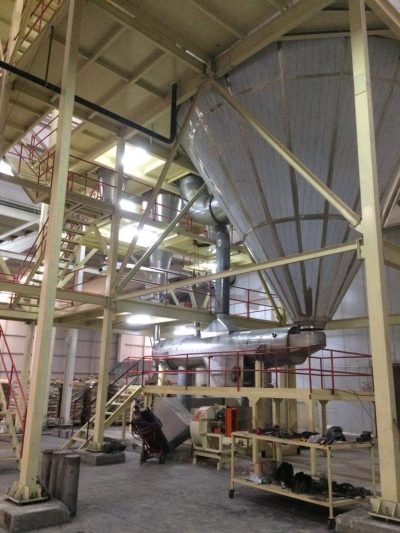
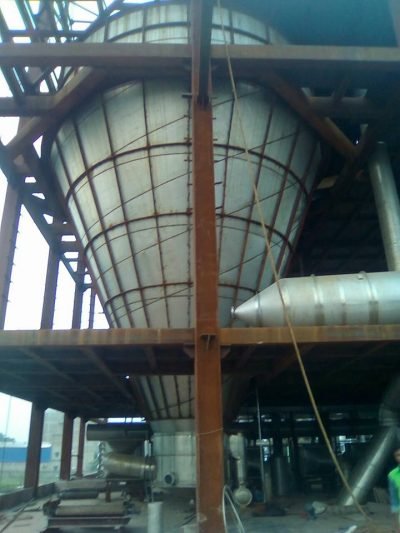
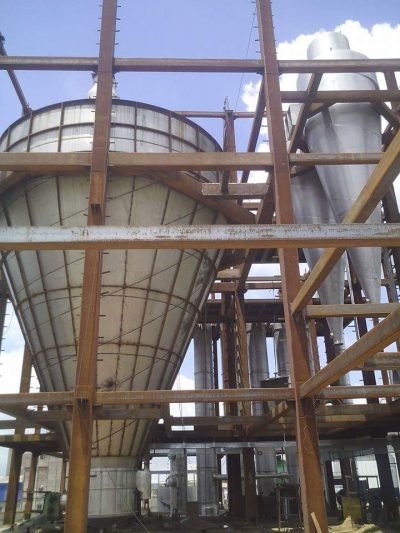


Spray Drying Plant
Industrial dryers are used to efficiently process large amounts of bulk
materials that require reduced moisture levels. Industrial dryers come in a
variety of models specifically designed for the type and amount of material
to be processed, depending on the amount and configuration of material
that needs to be dried. The most common types of industrial dryers are
fluid bed dryers, rotary dryers, rotary bed dryers, conduction dryers,
convection dryers, spray dryers, pharmaceutical dryers, suspension/paste
dryers, toroidal bed or Torbed Dryers, and dispersion dryers. Many factors
are considered when determining the type of dryer that is appropriate for a
particular application, including materials to be dried, drying process
requirements, production requirements, final product quality requirements,
and available facility space.
Food / Milk Processing Plant
1. Reception and Testing: Raw milk is delivered to the processing plant is subjected to quality and safety tests. This includes
checking for bacterial contamination, temperature, and composition.
2. Pasteurization: Most milk processing plants pasteurize the raw milk to eliminate harmful bacteria and pathogens. Pasteurization
involves heating the milk to a specific temperature for a set period and then rapidly cooling it to kill any harmful microorganisms
while preserving the milk’s nutritional qualities.
3. Separation: After pasteurization, the milk can be separated into its components—cream and skim milk—using centrifugal
separators. This allows for the creation of different types of milk products with varying fat content.
4. Homogenization: Homogenization is the process of breaking down fat molecules in milk to prevent cream from rising to the top.
This ensures consistent texture and taste throughout the milk.
5. Standardization: Milk is often adjusted to meet specific fat content requirements for different products. This involves mixing
cream and skim milk in varying proportions.
6. Processing into Dairy Products: The standardized milk is processed into various dairy products like butter, cheese, yogurt, ice
cream, and milk powder, among others. Each product requires specific processing steps, such as fermentation for yogurt or
curdling for cheese.
7. Packaging: Processed dairy products are packaged in containers suitable for distribution and consumption. Packaging materials
and methods are chosen to maintain product freshness and prevent contamination.
8. Storage and Distribution: Packaged dairy products are stored in appropriate conditions to maintain their quality and safety.
Distribution channels transport these products to retail outlets, supermarkets, and other points of sale.


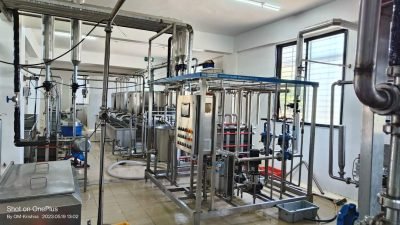



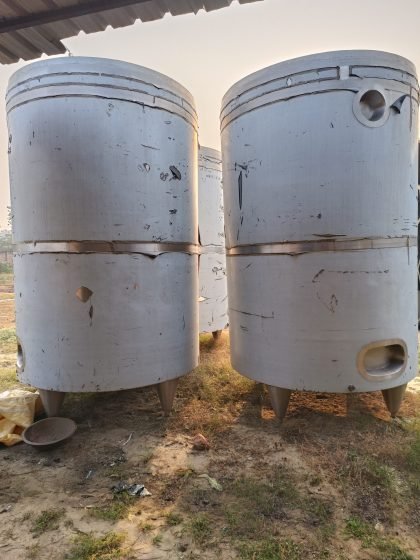
Storage Tank & Silo
Sahil Food And Pharma Engineering – Design and Manufacturing
desirable best quality all kind industrial using all type of Stainless
Steel and Mild-Steel Tank. Like Storage Silo, Process Tank, CIP
Tank, Receiving Tank, Balance Tank, Conical Tank, Jacketed Tank,
Triple Jacketed Tank, Vertical Tank, Horizontal Tank, Fermentation
Tank, Hot & Cold Insulated Tank, etc
Our Clients









































LOOKING AN ADEQUATE SOLUTION FOR YOUR PROJECT?
SAHIL FOOD AND PHARMA ENGINEERING
Kharsa No 462 shiv Ganga industri Etate, Chappur Road, Sherafganpur Chappur Road, Bhagwanpur, Uttarakhand
sahilfoodpharma@gmail.com
sales@sahilfoodpharma.com
+91-9821475027, +91-8057497640 +91-9412300350,
©2024 - SAHIL FOOD AND PHARMA ENGINEERING All Rights Reserved.
